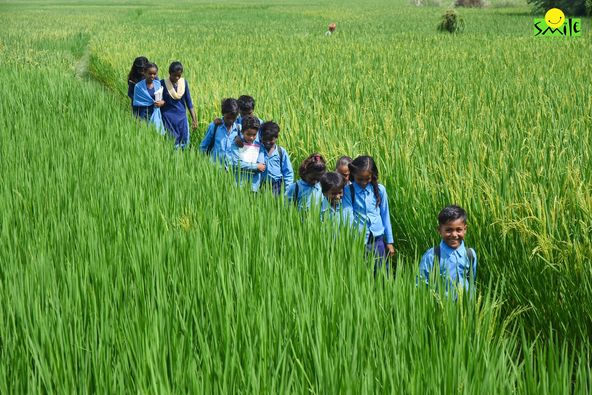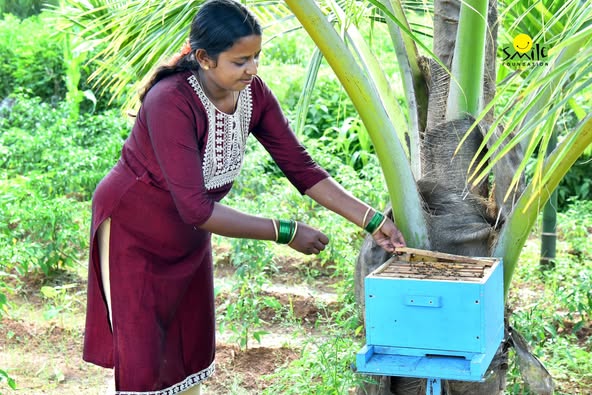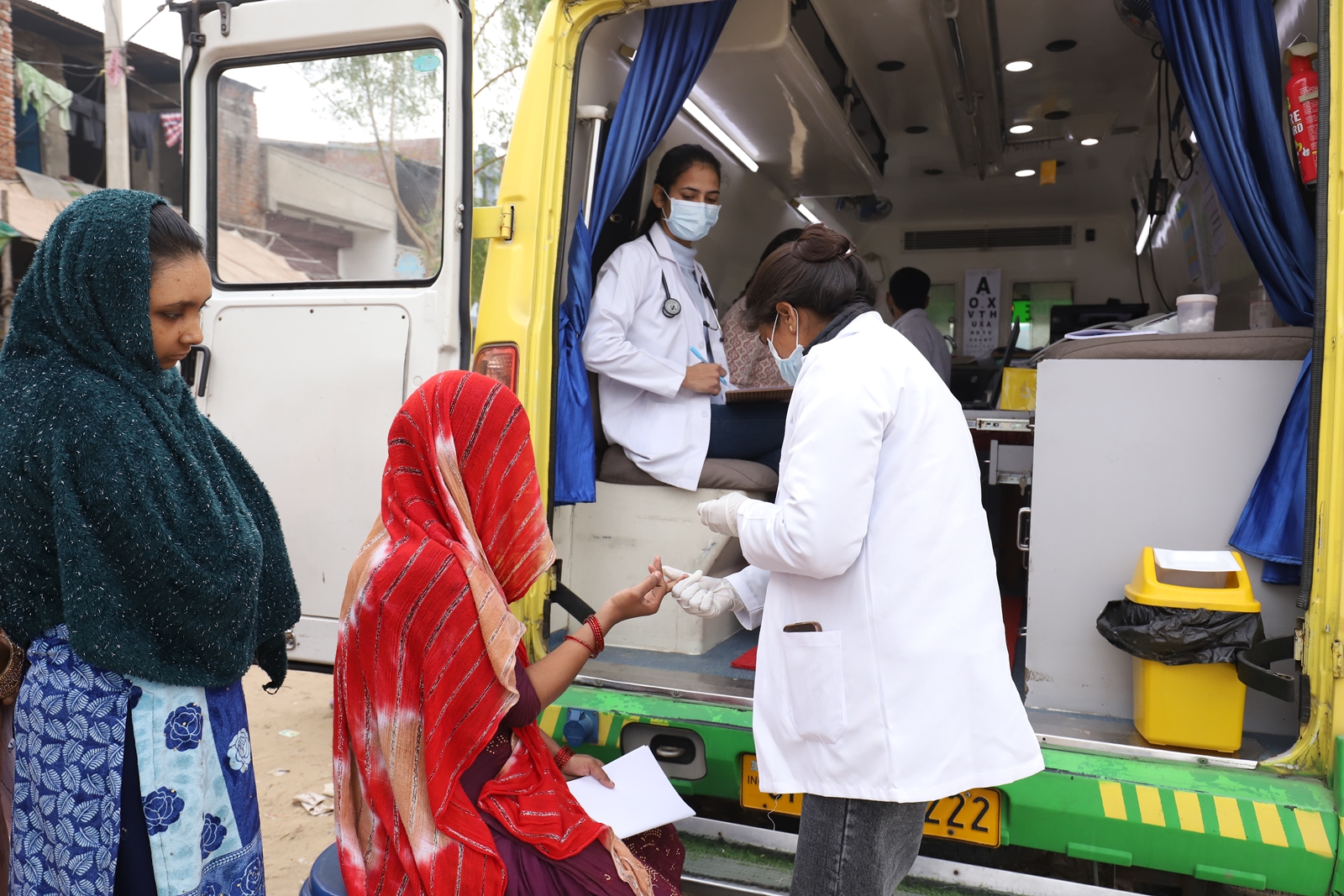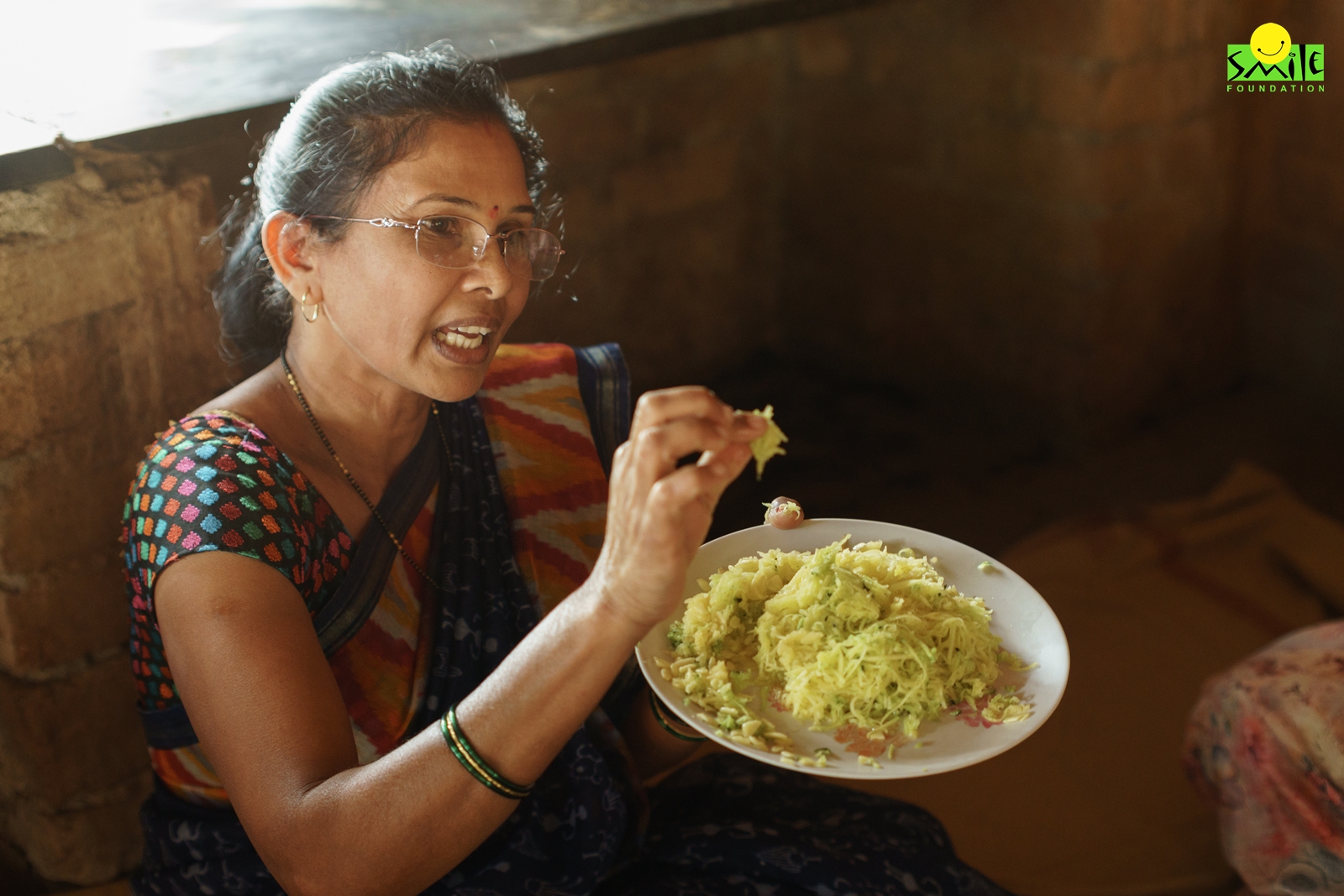The idea of things going in a circle is really important when we think about helping communities and making them stronger. A circle means everyone is included and we all share the job of making things better. It is about making sure no one is left out and everyone, no matter where they come from, is part of moving forward. This is the foundation of the lifecycle approach at Smile Foundation.
Take for example a rural community which faces multiple challenges such as limited access to education, healthcare and economic opportunities. Due to resource constraints, someone decides to focus its efforts on addressing the lack of education in the community. While the education intervention has undoubtedly made a difference in the lives of children, the overall development of the community remains incomplete. Without addressing the interconnected issues of healthcare and economic empowerment, the long-term sustainability and resilience of the community are compromised.
A lifecycle approach, encompassing interconnected issues, ensures comprehensive development. For instance, while improving education improves children’s prospects, neglecting healthcare and economic empowerment limits their overall progress. Thus, a balanced strategy, addressing various facets of community well-being, is crucial for lasting change and resilience. This is the essence of the lifecycle approach.
Why is this approach important?
By viewing interventions as part of a larger cycle, we can better understand how they interact and complement each other. For example, improving education can lead to better health outcomes, which in turn can enhance economic opportunities. Similarly, economic empowerment can positively impact education and health outcomes.
The circular model also promotes sustainability and long-term impact. By continuously reinforcing and building upon previous interventions, we create a self-reinforcing cycle of positive change within communities. This ensures that progress is not temporary but enduring, as each initiative contributes to the overall development of the community.
In essence, the circular model in the social sector emphasises the importance of holistic, collaborative and sustainable approaches to community development, ultimately leading to more impactful and enduring change
“Alone, we can do so little; together, we can do so much.”
Helen Keller
This aptly describes the circular approach, where the collective impact of interconnected initiatives creates a more significant, more profound effect than isolated actions.
How does a Circle define Smile Foundation’s Working model?
The Smile Foundation, embodies the profound wisdom of the ancient philosopher Aristotle – “The whole is greater than the sum of its parts.” This timeless insight echoes through the lifecycle approach of the organisation to development, which mirrors the cyclical nature of growth, learning and evolution in its mission to transform lives.
This strategy covers various stages of individual development, from early childhood through adulthood, addressing education, healthcare and livelihood in a comprehensive manner. Each phase in the lifecycle approach is both a conclusion of previous efforts and a foundation for future endeavours, creating a sustainable loop of impact.
Education to Empowerment
Smile Foundation begins its cycle with education through its Shiksha Na Ruke initiative, focusing on children and young adults. By providing access to quality education, the flagship initiative not only equips individuals with knowledge and skills but also instills confidence and a sense of purpose. As these individuals progress, they transition from being beneficiaries to becoming active contributors to their communities, thereby initiating a new cycle of empowerment and development.
Healthcare as a Continuum
Parallel to education, healthcare services through its Health Cannot Wait intervention ensure that individuals are not only intellectually but also physically equipped to pursue their dreams. The health initiatives, which range from basic immunisation to advanced healthcare services, underscore the importance of a healthy life as the backbone of personal and community development. This continuous focus on health creates a cycle of well-being that supports and enhances educational and vocational efforts.
Focus on Gender Strengthening
Women are the backbone of families and communities, and when they are empowered, the entire society benefits an we recognised this at a very early stage. Providing education and healthcare services to children and the community is not enough, acknowledging the important role of women empowerment in driving the growth and uplifting of families and communities from poverty is incumbent upon all of us. Swabhiman programme is an honest effort towards fulfilling this commitment. By investing in women empowerment, the projects are not just changing lives; they are transforming futures and building a more inclusive and prosperous world for all.
Livelihood and Beyond
The cycle culminates in a skilling and livelihood programme designed to offer adults the skills and opportunities needed to secure a stable, dignified existence named Smile Twin e-Learning Programme (STeP). These programmes move beyond job training and are about nurturing self-reliance and entrepreneurship, qualities that ensure individuals not only sustain themselves but also contribute to the economic and social welfare of their communities. Thus, the completion of one cycle seeds the ground for the next, as empowered individuals uplift others, creating a chain of positive change.
The Community as a Circle in lifecycle approach model
Beyond individual development, the lifecycle approach reinforces the idea of the community as a circle. In this view, every action taken to support an individual reverberates throughout the community, strengthening its fabric and enhancing its resilience. This perspective fosters a sense of unity and shared responsibility, essential qualities in the pursuit of sustainable development.
By recognising that each phase of development feeds into the next, the circular model sets in motion a self-sustaining cycle of empowerment, health and economic stability. In both the social and development sectors, the circle symbolises inclusivity and collective responsibility. It represents a holistic approach that leaves no one behind, ensuring that every individual, regardless of their background, is part of the journey towards progress.









